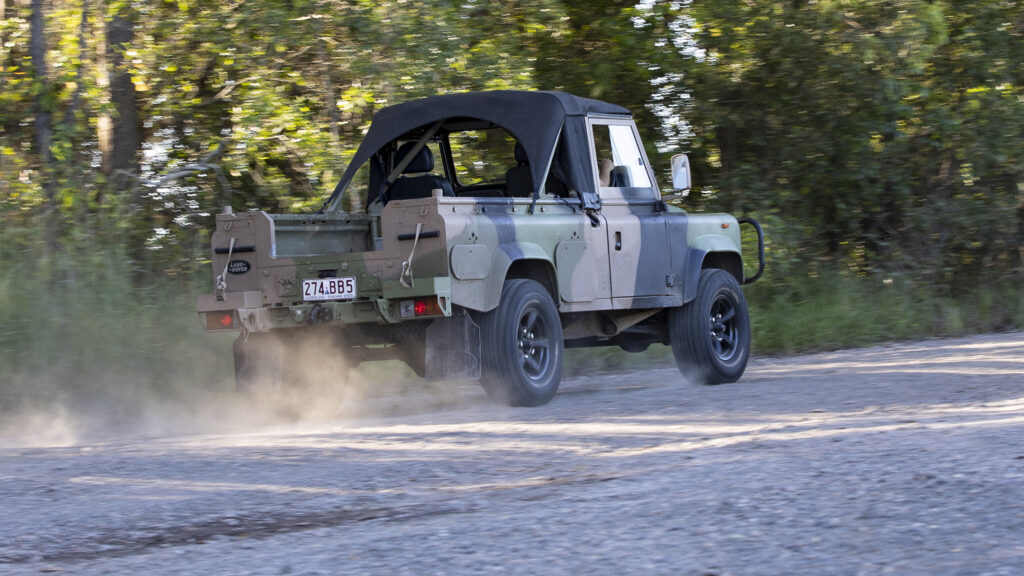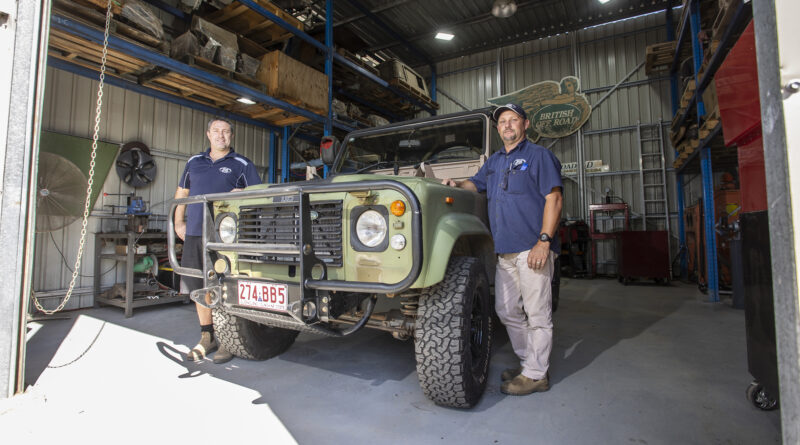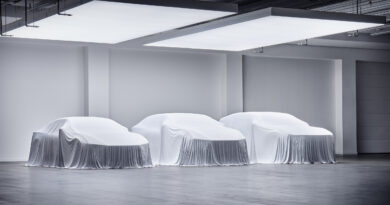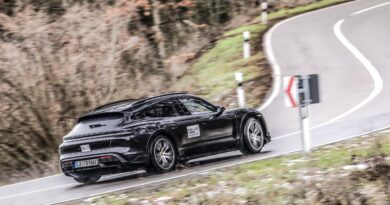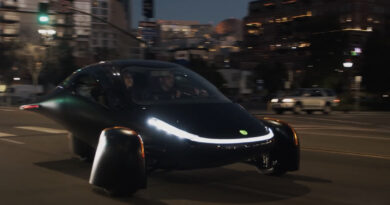EV conversion business profile: British Off Road, QLD
You’d have thought a Land Rover and Range Rover specialist with almost 50 years’ experience would be a bit set in its ways, but British Off Road on Queensland’s Sunshine Coast isn’t just a one-stop shop for the traditionalist.
Electrification has become a booming part of its business, mainly due to very strong customer demand. Its expansive yard and sheds heave with body shells and parts dating back to the 1950s, but in one of the workshops there are significantly more modern happenings.
A beautiful electric converted 1969 Volkswagen Beetle rolls silently out into the sunshine, while an immaculate VW Kombi is in the final stages of receiving its new electric heart.
Then there’s the tough guy standout: a Land Rover Defender Perentie. This Australian Defence Force ute has been stripped of its Isuzu diesel engine and gifted a NetGain electric motor and Tesla batteries.
As an emerging force on the electric conversion front, we asked British Off Road’s Mark Calder to talk us through what’s involved, pricing and which vehicles are best suited to electromodding.
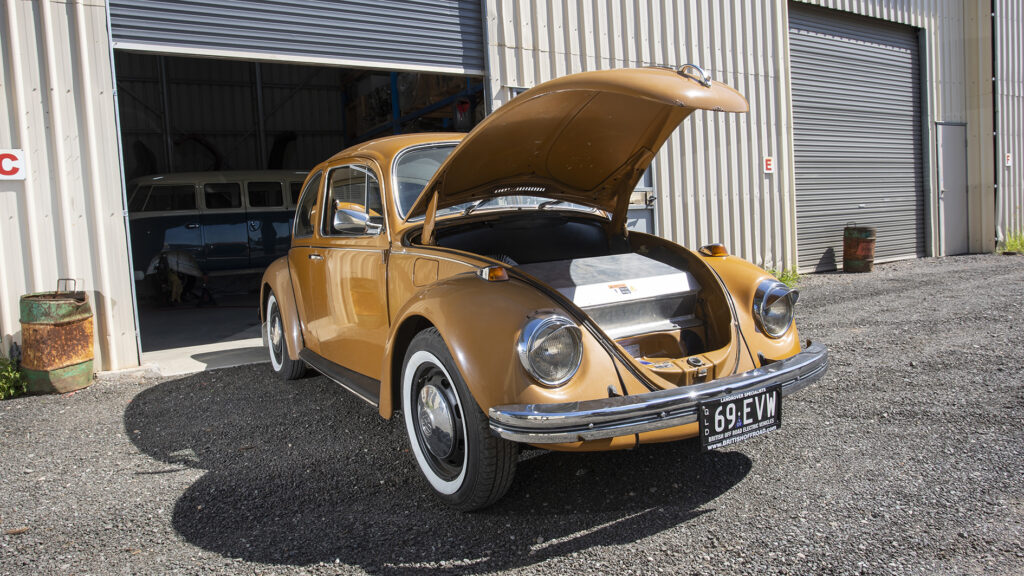
Why did you start doing EV conversions?
We knew at some point in the future most things would go electric and I’ve always been interested in the subject. It was then accelerated by customer enquiry.
What vehicles have you converted so far?
The 1969 Beetle, the Perentie and we’ve now finished the Kombi. The first two have a range between 100-150km. We’ve used the same battery in the Kombi as the Perentie, but due to its lighter weight and better aero it will do between 200 and 300km.
What projects are next?
We’re working on another Beetle right now, and a 2013 Land Rover Defender with Tesla motor is next.
Won’t the Defender be much harder to convert with it being more modern?
It’s a consideration, but we’re sorted for it. It does have CAN (CANBUS) but being a classic shape Defender it has a lot less features than, say, a Range Rover. We’ve done ICE engine conversions on these Defenders before and know everything else works with the different motor: electric windows, dash, air conditioning. It’ll be the same with the electric motor.
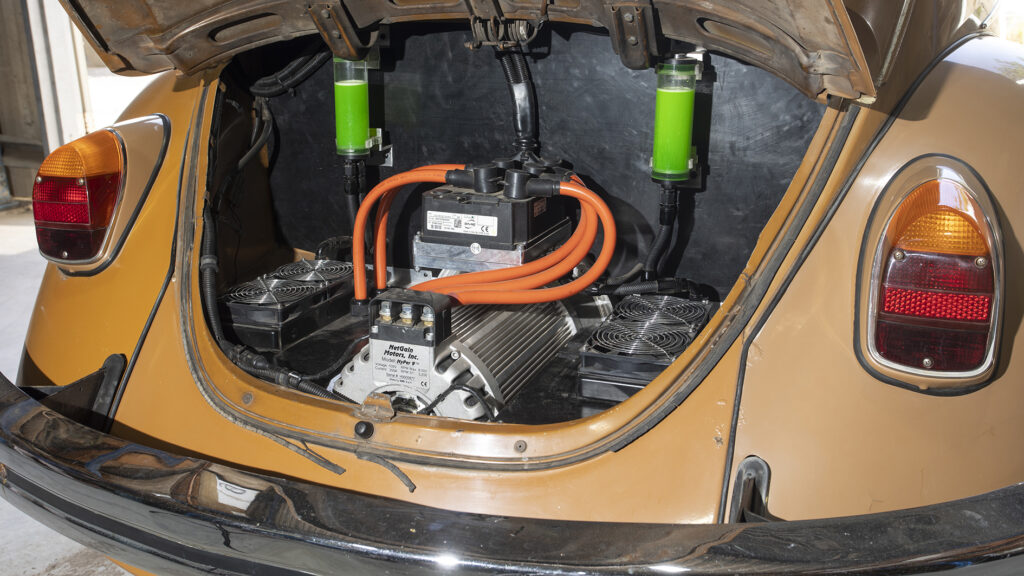
What vehicles do you think are best for electric conversions?
Classics. Especially if you use conversion-type motors like NetGains. Once you start using OEM motors like a Tesla’s, you can obviously move some bigger (heavier and larger) cars around quite well. You still have to have a consideration of the weight and space for the amount of battery that will give reasonable range. Our electric Perentie actually weights 50kg less than it did before, where something like the Kombi with the same setup is up by 250kg.
What vehicles aren’t good candidates?
It depends. It’s definitely cheaper and easier to use an older, slighter vehicle, but the problem you run into is payload in some of those vehicles is very small. Like the first series Mazda MX-5 (NA), with two overweight people on board that puts that car overweight – it’s only something like 220kg so it’s difficult to do legally in Australia. Whereas something like a VW Beetle, it has a reasonable payload so is good for conversion and one of the cheapest too.
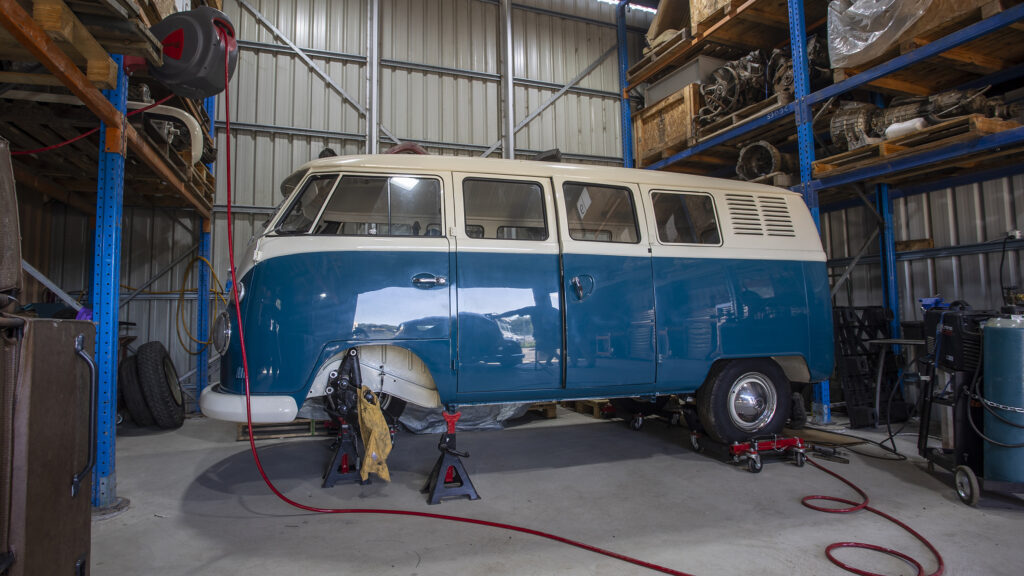
Why should people do an EV conversion?
It’s an expensive thing to do so it comes down to the environmental side: you’re reconditioning, repurposing, recycling. You’re recycling batteries when they’re out of a secondhand Tesla for example. You’re also not buying another vehicle, and the manufacturing involved there. You don’t keep using fuel. That’s the green side.
What are the specific benefits of it being an electric converted car?
If it’s a classic car, there’s now very little to go wrong. Classic cars – especially British ones or even VWs – if it’s not driven for a few weeks you run into stuff like points are stuck, the carbies are out of tune, the fuel’s gone stale, etc. If it’s converted it’ll go first time every time. It’s so much easier to drive too. It doesn’t matter if it’s got a manual gearbox or not, you’ll only use one or two gears. The driving experience is more pleasurable, but you may miss the burble of the original engine. I don’t miss it with the Beetle, even though I thought I would.
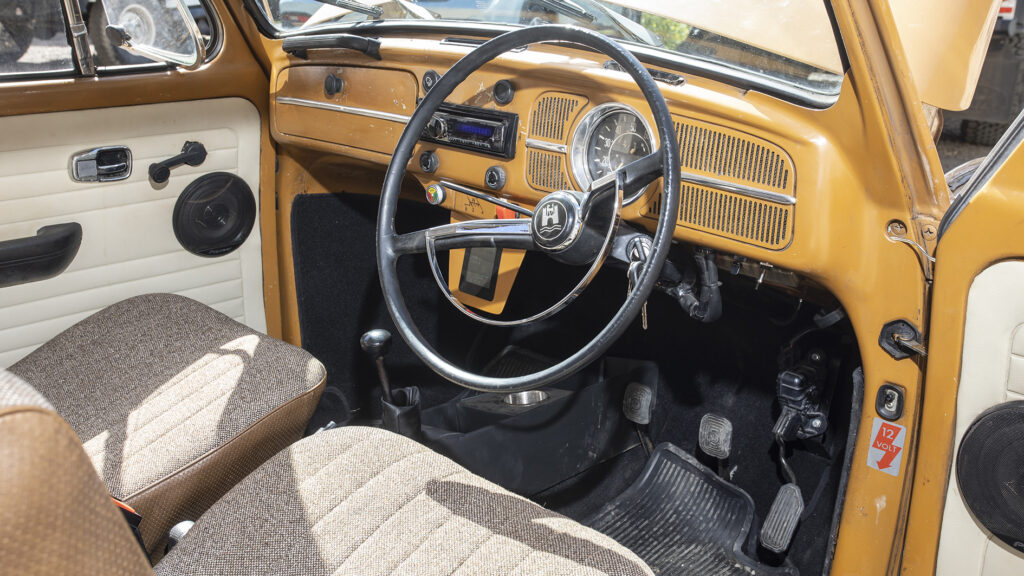
Some think it sacrilegious to swap an original engine for an electric motor…
I understand that side definitely. But since we started doing EV conversions, I notice petrolheads also like performance, so once they drive one, there’s very few who aren’t sold on the idea.
What motors do you use in your conversions?
Primarily it’s been NetGain ones which are specifically designed as a conversion motor. They’re super reliable, quite reasonably priced and the availability is relatively good.
What about batteries?
They’re a different story. Tesla Model S batteries we used initially, but they’re now very hard to get. Model 3 batteries are a lot harder to use because they’re physically bigger. There are emerging batteries coming along, plus more usable ones out of some other OEM EVs, although they’re not very plentiful. Some off-the-shelf batteries, designed for OEM, are also arriving which are modular and relatively easy to use. We’ve got some of those on the way.
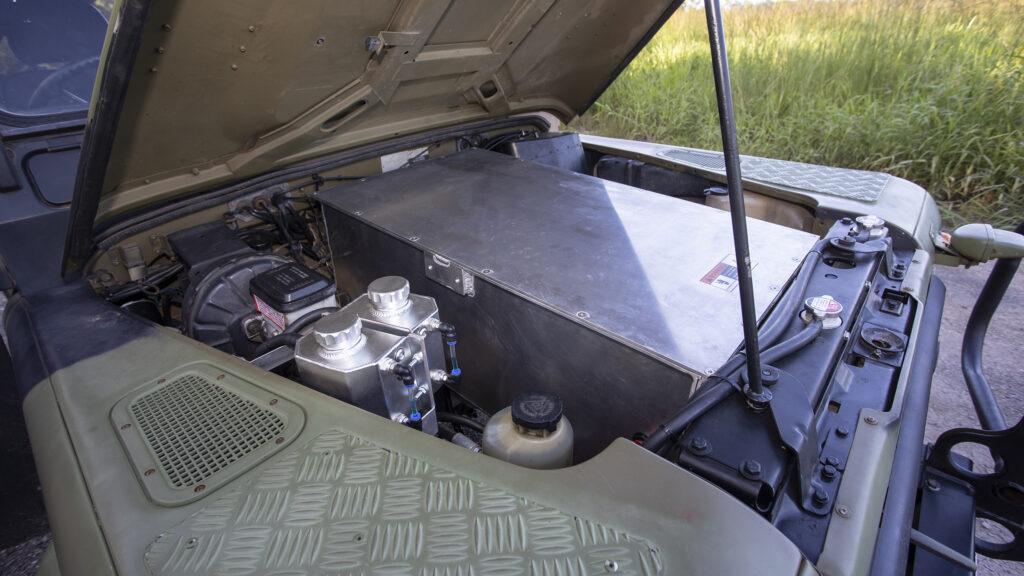
Are your conversions reversible?
Yes. We’ve tried to make everything completely reversible. The things we modify are practically only a few holes and they’re in places where they wouldn’t normally be seen, and aren’t structural either. Being reversible is a consideration some people have, but when they drive them, they decide they’d never go back. We’re doing a 1954 VW Beetle oval window matching numbers car at the moment – a rare car. Its original engine is being put in a glass box after cleaning, and it could be reversed in future.
What other changes need to happen on the car with EV conversions?
Very little on basic cars like a Beetle. They don’t have power steering or boosted brakes so are pretty straightforward. When you get into newer stuff like our Perentie we had to put in a Tesla e-brake. There’s the steering side of things, the air con, but you can get high voltage electric compressors, that’s relatively easy. Power steering you use an electric hydraulic pump to run the original power steering system on the Perentie; on other vehicles you use an electric power steering kit that’s fitted in the column.
What do you charge for an EV conversion?
Everything we use is proven and quality. Mainly due to battery pricing conversions are quite expensive, with a basic one starting at around $70,000.
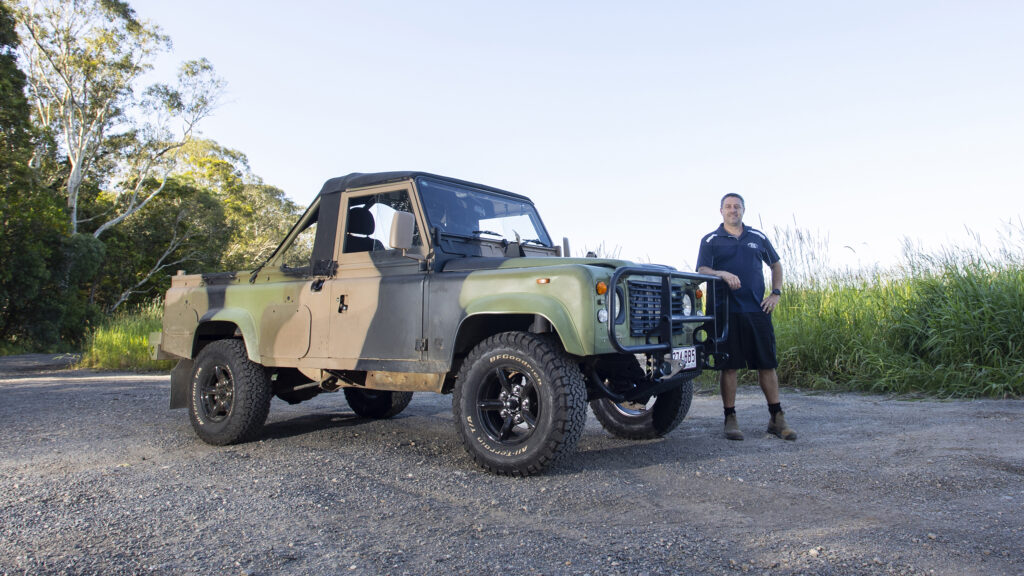
When could a customer expect you to complete a conversion?
We do have work ahead of us, but it’s scalable for us due to our existing business. We’d be looking at probably 6-12 months.
Can people do EV conversions themselves?
Yes, but you need to be handy if you’re looking to do it all yourself. There’s no one thing that’s particularly hard, but there is the safety factor with the high voltage. It’s definitely time consuming. When I first researched it I saw the average time for someone doing their own conversion was a couple of years.
Do you sell parts for people to do EV conversions?
We do, depending on what you’re doing. If it’s a basic VW Beetle conversion with NetGain motors, we have all that on the shelf.
Any problems with registration with an EV conversion?
As long as you follow the guidelines there’s no issue with registration. You have to have an engineer’s inspection and do everything by the book.
